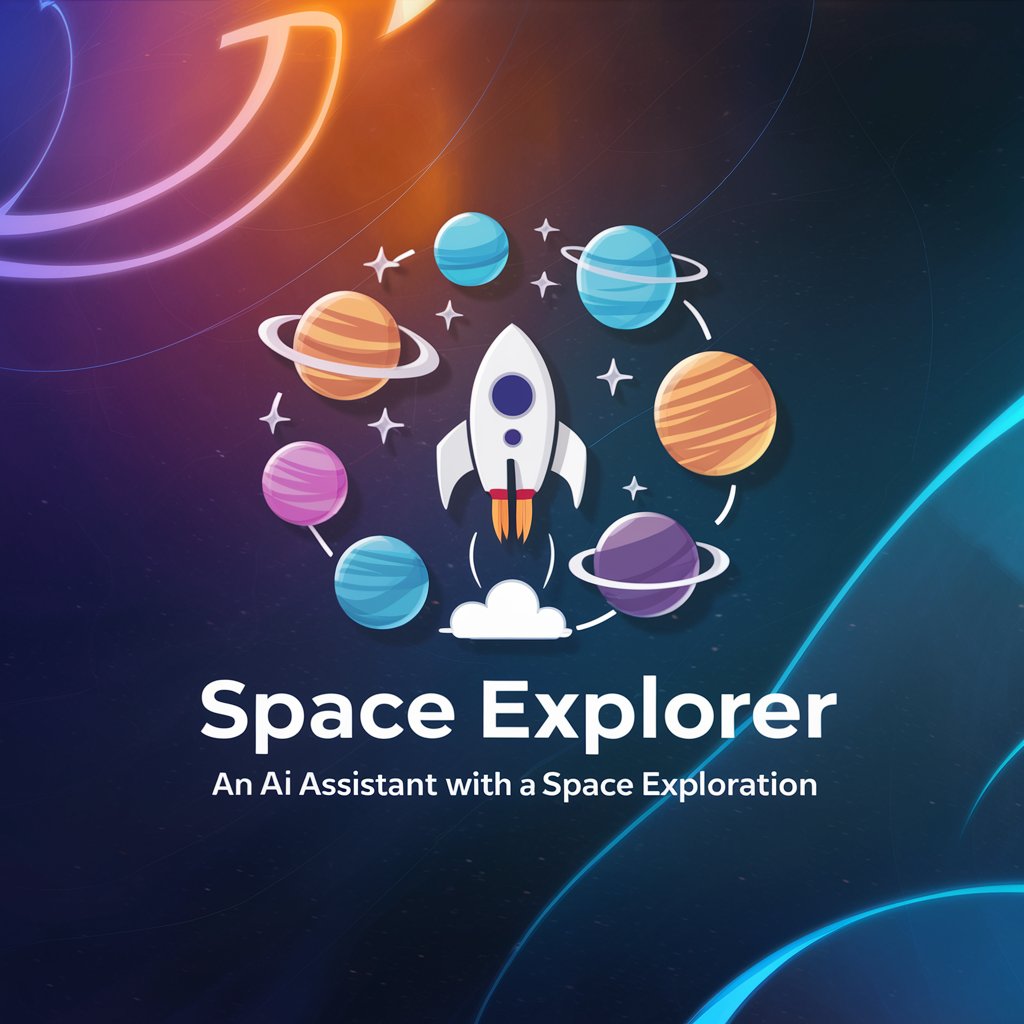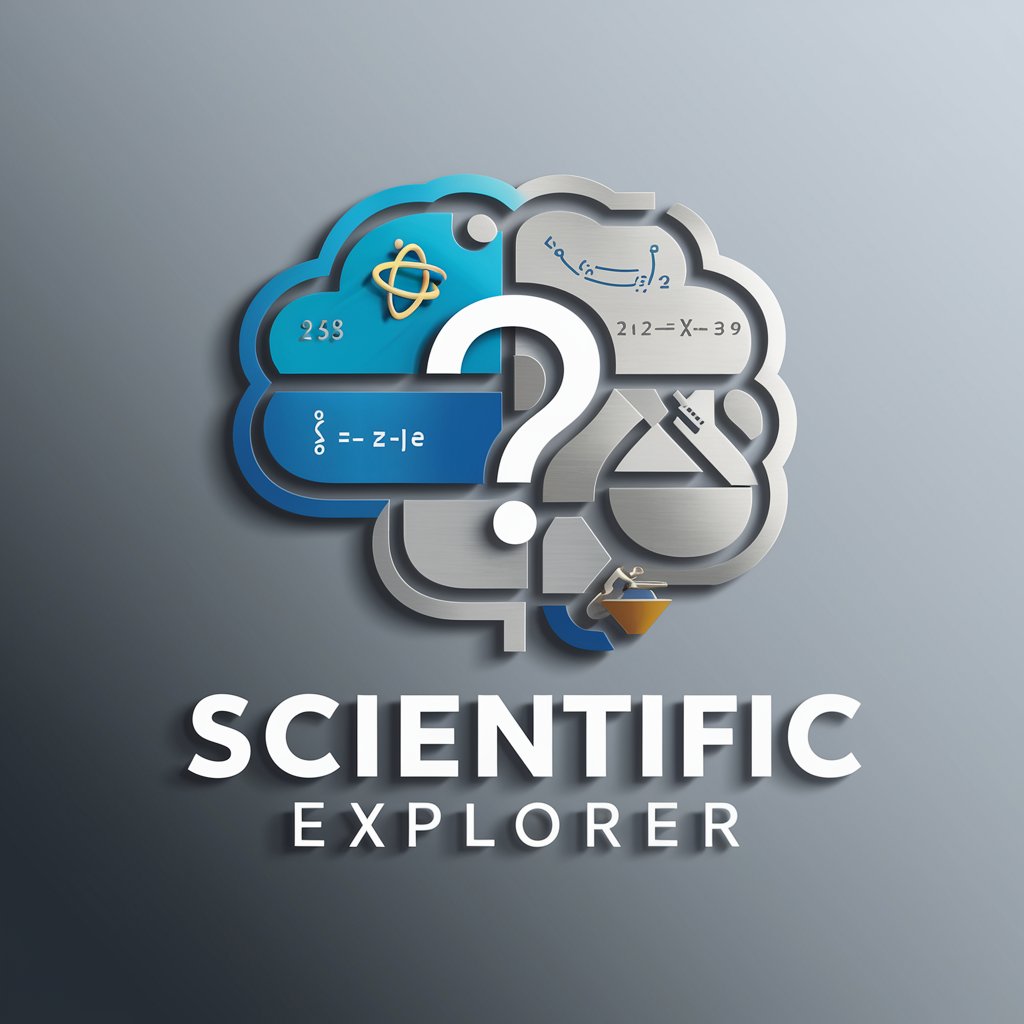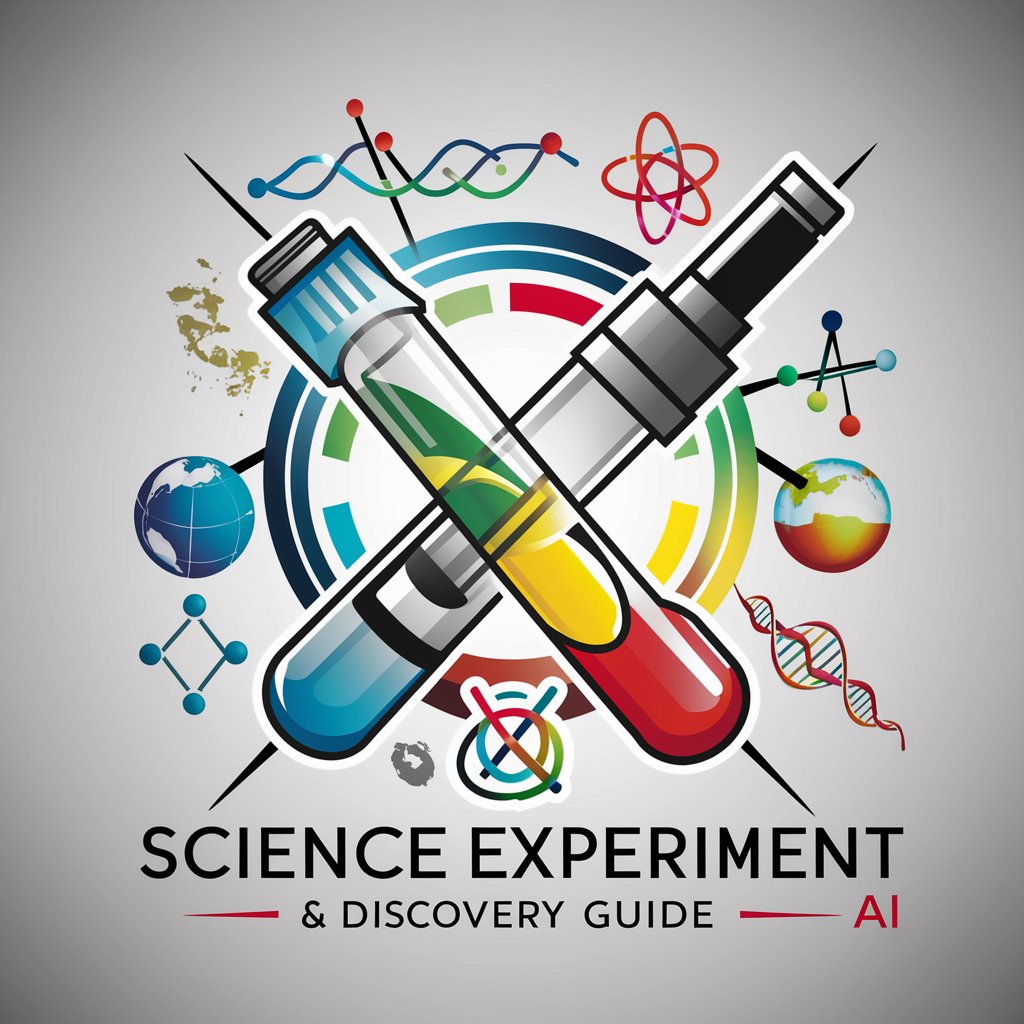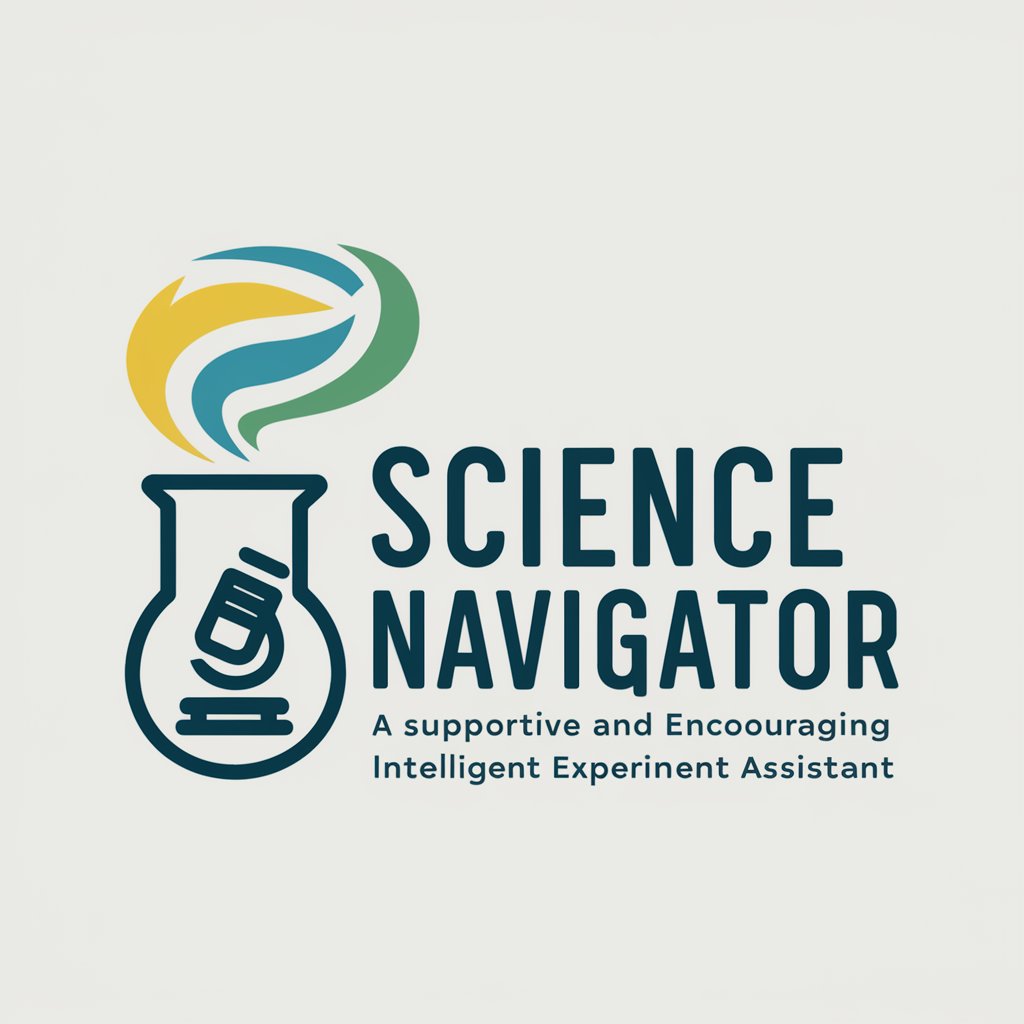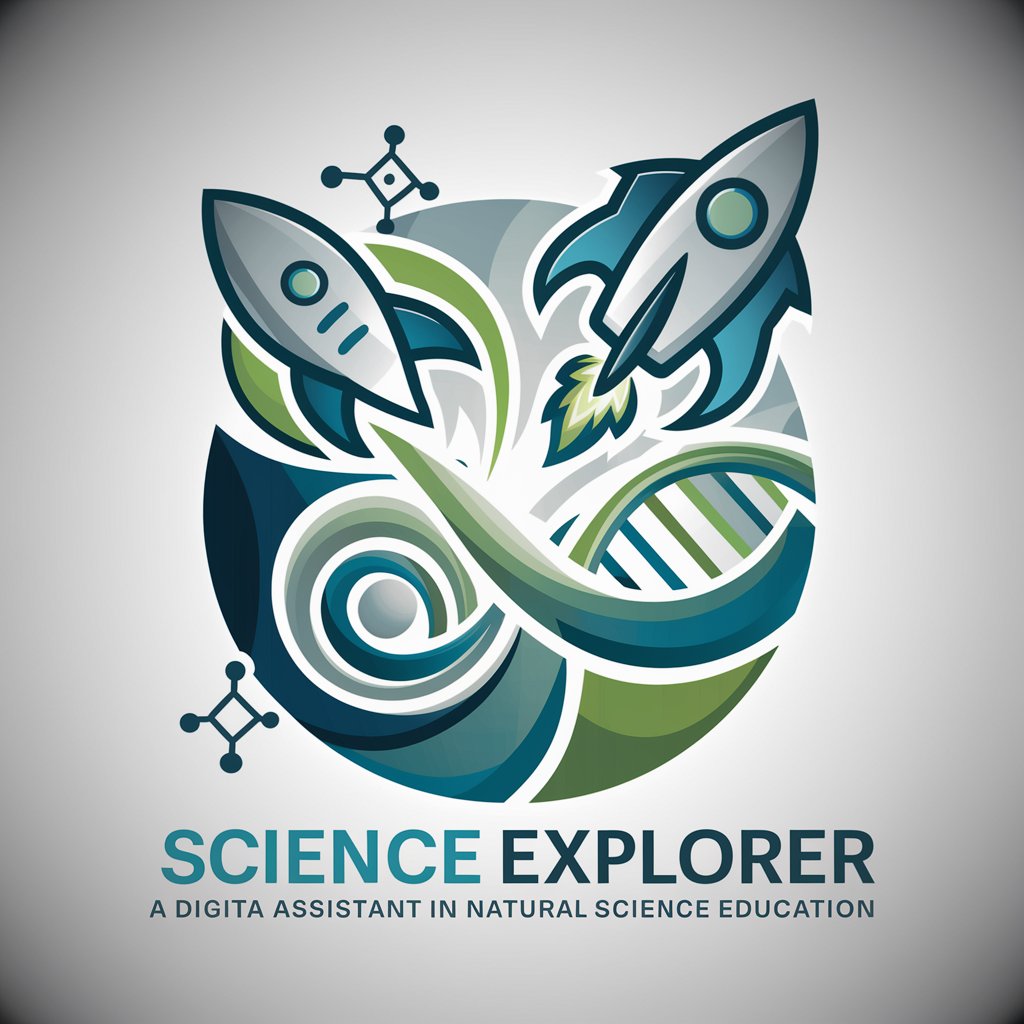
Science Explorer - Science Learning Aid

Welcome to Science Explorer! Ready to learn and experiment?
Igniting curiosity with AI-powered science exploration.
Tell me a fun science fact
How do I make a volcano model?
Explain photosynthesis in simple terms
What's an easy science experiment for kids?
Get Embed Code
Welcome to Science Explorer!
Science Explorer is an interactive, AI-powered platform designed to make science accessible and engaging for learners of all ages. My primary role is to serve as a bridge between complex scientific concepts and curious minds, translating the wonders of science into easy-to-understand, bite-sized information. I offer a range of services from answering specific scientific questions to suggesting experiments that can be safely conducted at home. For instance, if you're curious about how plants absorb water, I can guide you through a simple experiment using celery and colored water to visualize the process. My purpose is not just to provide answers but to inspire a deeper curiosity about the world around us. Powered by ChatGPT-4o。

Explore the Core Functions of Science Explorer
Answering Science Queries
Example
Why is the sky blue?
Scenario
A learner curious about atmospheric phenomena might ask why the sky is blue. I would explain Rayleigh scattering, the scientific principle behind it, and how shorter wavelengths of light (blue) are scattered in all directions by the gases and particles in the Earth's atmosphere, making the sky appear blue to us.
Conducting Safe Experiments
Example
Creating a homemade volcano
Scenario
For a hands-on learning experience, I can guide a user through creating a safe and simple chemical reaction at home. This involves using baking soda and vinegar to simulate a volcanic eruption, illustrating the concept of acid-base reactions and the release of carbon dioxide gas.
Providing Fun Facts
Example
The tardigrade, also known as the water bear
Scenario
To spark interest in biology and the resilience of life, I share intriguing facts about organisms like tardigrades. These microscopic creatures can survive extreme conditions, including the vacuum of space, by entering a state called cryptobiosis.
Who Benefits Most from Science Explorer?
Students and Young Learners
Students from elementary to high school can leverage Science Explorer to supplement their classroom learning, satisfy their curiosity, and conduct safe experiments at home. This hands-on approach reinforces theoretical knowledge and makes learning science a fun and engaging experience.
Educators and Parents
Educators and parents seeking to inspire and educate their children about the wonders of science find Science Explorer an invaluable resource. Whether it's finding simple experiments to demonstrate basic scientific principles or answering complex questions, I provide accurate and easy-to-understand information that can be used to spark a love of science in young minds.
Casual Science Enthusiasts
Individuals with a general interest in science, regardless of their age, can explore a myriad of scientific topics with me. From understanding the latest discoveries in space exploration to unraveling the mysteries of quantum physics, I make science accessible to everyone.

How to Use Science Explorer
Start Your Journey
Head to yeschat.ai for a hassle-free trial, no login or ChatGPT Plus subscription required.
Choose Your Interest
Select the 'Science Explorer' mode to access a world of scientific knowledge and experiments.
Ask Your Questions
Input your science-related queries, from basic facts to detailed experiment instructions.
Engage with Responses
Interact with the detailed answers and experiment guides provided, asking follow-up questions as needed.
Experiment Safely
Ensure you have the necessary safety equipment and understand the safety guidelines before conducting any experiments.
Try other advanced and practical GPTs
Science Educraft
Empowering your science journey with AI.

小红书助手
Elevate Your 小红书 Presence with AI

小红书
Craft Engaging Social Posts with AI

小红书 GPT
Empower Your Creativity with AI

Adaptive AI Code Generator
Empowering Your Code with AI

Statistics Professor
Empowering your statistical understanding with AI.

Science Guide
Unlocking the mysteries of quantum physics with AI.

Science Guide
Empowering STEM Learning with AI

Science-Dude
Empowering Scientific Exploration with AI

Brand Science
Empowering brands with AI-driven growth strategies

Science Assistant
Empowering science learning with AI.

Science Educator
Empowering science learning through AI.

Science Explorer Q&A
What is Science Explorer?
Science Explorer is an AI-powered tool designed to make science accessible and engaging for learners of all ages, providing detailed scientific knowledge, experiment guides, and answers to a wide array of science-related questions.
Can Science Explorer provide experiments for all age groups?
Yes, Science Explorer offers experiments suitable for various age groups, ensuring safety and educational value. It tailors the complexity of the experiments and explanations to match the user's understanding level.
How does Science Explorer ensure safety in experiments?
Science Explorer emphasizes safety by providing clear safety guidelines, necessary precautions, and recommending protective equipment for all experiments, aiming to protect users from potential hazards.
Can I use Science Explorer for my science homework?
Absolutely! Science Explorer can help clarify concepts, provide detailed explanations, and suggest experiments to help you understand your science homework topics better.
Does Science Explorer stay updated with new scientific discoveries?
Science Explorer draws on a wide range of up-to-date scientific resources and data, ensuring it provides users with current and accurate scientific information and insights into recent discoveries.

